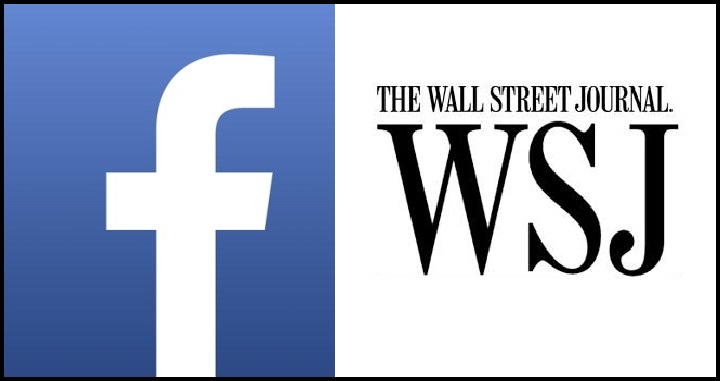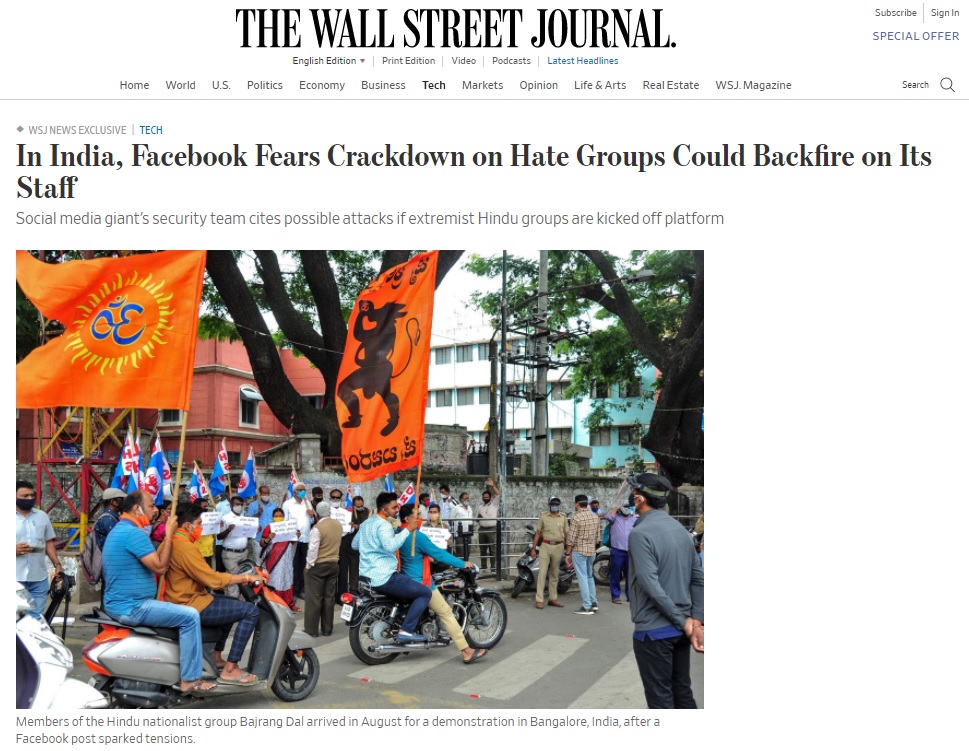
Earlier this week, a Wall Street Journal report had claimed that despite an internal assessment calling for a ban on Bajrang Dal pages and content on its platform, Facebook had decided not to act as it deemed that “cracking down on Bajrang Dal might endanger both the company’s business prospects and its staff in India”. The WSJ report has caused a flutter among in India’s political circles with Congress targeting the social media giant.
Consequently, the Parliamentary Standing Committee on Information Technology on Wednesday chaired by Congress leader Shashi Tharoor summoned Facebook India head while the committee was to discuss the safety of user data in India. The opportunity was used by the Congress members of the committee to target Facebook based on the WSJ report. During the hearing, Congress MP Karti Chidambaram referred to the report by The Wall Street Journal and sought a response from Facebook.
Facebook India head Ajit Mohan who appeared before the parliamentary panel on Wednesday told that its fact-checking team had found no cause to act against Bajrang Dal and rejected allegations that Facebook did not scrutinize accounts belonging to the Hindu organisation. Responding to other allegations by the WSJ, Facebook reiterated before the panel that it’s fact-checking team had not, so far, found any content, or material posted by the Bajrang Dal, that violated its social media policies.
Facebook India chief Ajit Mohan has also rejected the WSJ report saying it was “factually wrong and untrue”. He also categorically told the parliamentary panel that people quoted in the WSJ report “had no knowledge or authority, and were not in the hierarchical chain” to comment on the decision making process.
BJP’s Nishikant Dubey who is also part of the committee, reportedly asked Facebook India executives as to why it didn’t call the WSF report as fake if it didn’t violate the company’s social media policies. Facebook India chief, however, was not able to respond on why the social media platform had not issued an official rejoinder to the WSJ report. It has to be noted that Facebook has not yet sought any correction of facts from WSJ even though the report was published almost 6 days ago.

When the panel asked the Facebook officials about the specific mechanisms the company employed to check hate speech, Facebook officials reportedly told the panel that it has no grievance redressal mechanism in India. The team also claimed it did not favour any individual or political party, and was not facing any political pressure either.
However, despite the parliamentary panel hearing and not to be left behind, Congress MP and Nehru dynasty scion Rahul Gandhi known for his intemperate comments on all issues joined other Congress leaders in targeting Facebook. He took to Twitter to point out alleged contradictory positions taken by the social media company on Bajrang Dal contents.
“Facebook US says Bajrang Dal content is offensive and should be banned. Facebook India tells our Parliamentary panel that Bajrang Dal content is not offensive. Is Facebook lying to India and its Parliament?” asked Gandhi on Twitter.
VHP to take Legal Action against WSJ
The Vishva Hindu Parishad on Dec 18 in a press statement by its Secretary General Milind Parande asked the Wall Street Journal to apologize for its false reporting. He said that the WSJ tried to target and discredit Bharat under the pretext of maligning Barang Dal, is totally unacceptable. VHP Secretary General also charged that earlier media reports, quoted from the Wiki-Leaks, make it clear that Mrs Sonia Gandhi had also been hatching quite a lot of conspiracies to ban the Bajrang Dal, but she could not succeed.
Though Facebook has clarified that there is no reason to block Bajrang Dal on its platform, there have been demands to ban the organisation. “This reflects their hostile anti-Hindu mindset”, says the VHP statement.
VHP has also demanded that Rahul Gandhi should apologize for trying to defame Bajrang Dal. “Rahul Gandhi’s conspiracy to defame Bajrang Dal, under cover of false accusations published in the Wall Street Journal, has exposed his mind set”, read the statement.
“A nationalist organization like the Bajrang Dal is evidently poking in the eyes of Rahul Gandhi, who has proactively been standing by and standing up with lots of anti-national elements, including the pro-China and pro-Pakistan Tukde-Tukde gang, the anti-CAA hordes and hooligans and the Delhi rioters advocating their unconstitutional and anti-national stances. His affiliation and rapport with China is well known. He would believe in an American newspaper but not in a Pan-Bharat nationalist youth organization”, charged Milind Parande’s statement.
The VHP’s statement reiterated its demand that Rahul Gandhi and the Wall Street Journal apologize to the Bajrang Dal and the Hindu society that forms 1/6′ of the global population.
There has been no response from either WSJ or Rahul Gandhi after VHP released its statement. Any response from them will be updated here accordingly.
